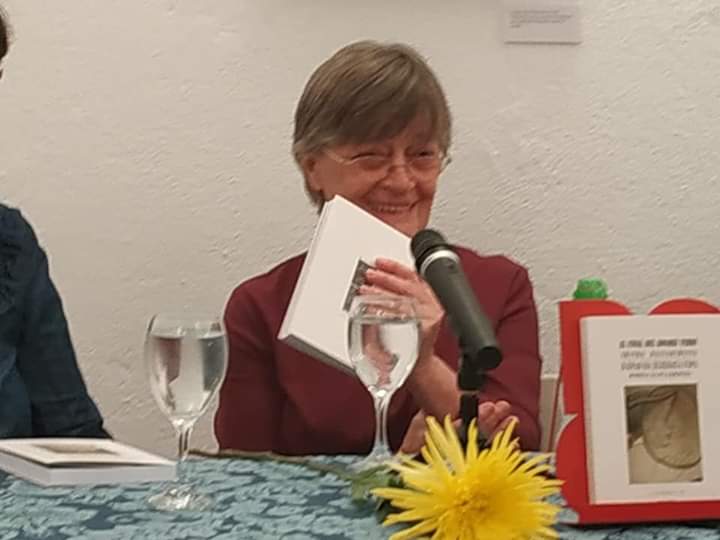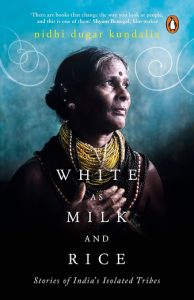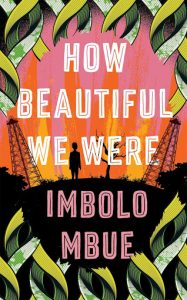BY Poet Siti Ruqaiyah Hashim
SRH: Tell me more about your childhood background, schooling and university education.
Pregunta: I grew up in great solitude. My grandparents, the men, were not very talkative. They had been very leftist, very revolutionary, my grandfather had even been shot and thrown into a
ravine in the year 1924 (few months before his son was born) for participating in the anti-fascist revolt that occurred in Bulgaria in 1923. But some shepherds still found him alive and saved him. These men when they encountered the reality of the Stalinist system experienced a great shock, a tremendous internal conflict and locked themselves. They felt cheated even by words. Once I asked Grandpa why he never spoke. He answers: I’m ashamed …
They were my mother and the grandmothers who gave me all the love in the world, all the wisdom,
the desire to create and give beauty, the clear awareness that without love and beauty this world was over.
ZB: It was not a very easy childhood to describe. I was born in Sofia, the capital of Bulgaria in
1947. But I grew up in a city of provinces – Sliven. In the post-war era of poverty and sad urban
landscapes. My father was anarcotolstoísta and these were fiercely persecuted by the Stalinist
regimes. I met him for the first time when I was 5 years old because before I was born he was tried by
the so-called People’s Court, imprisoned and then spent years and years in different concentration
camps. Yes, I was almost five years old, when Stalin died. I lived it with great jubilee because they
always told me that Dad is not there because Stalin had called him up, to defend or to build, I don’t
know what. And for me, the news that Stalin was no longer meant that now my father would return.
And really, about half a year later Dad came back and I could really meet him. Before my mother and grandmother took me several times to see him when they got permission to visit him in jail or in the concentration camp but this was something that only terrified me. Because what I saw was an emaciated, bleeding, alien, desperate and painfully serious man, among armed men who did not even allow us to touch hands. Terror didn’t allow me to feel anything else, to remember that painful face.
When I remembered years later, I lost consciousness and collapsed on the stairs of a public
building that had been the prison where I first saw him.
ZB. I grew up in great solitude. My grandparents, the men, were not very talkative. They
had been very leftist, very revolutionary, my grandfather had even been shot and thrown into a
ravine in the year 1924 (few months before his son was born) for participating in the anti-fascist revolt that occurred in Bulgaria in 1923. But some shepherds still found him alive and saved him. These men when they encountered the reality of the Stalinist system experienced a great shock, a tremendous internal conflict and locked themselves. They felt cheated even by words. Once I asked Grandpa why he never spoke. He answers: I’m ashamed …
They were my mother and the grandmothers who gave me all the love in the world, all the wisdom,
the desire to create and give beauty, the clear awareness that without love and beauty this world was over.
But they worked. And I spent a lot of time alone. And as I knew by heart the stories and poems they told me, I looked for the books and spent days and days trying to identify the words, the letters that corresponded to those sounds. And in this way I learned to read and write …
Then I was lucky to have some fabulous teachers in the school and a large library near my house. I was able to study Bulgarian and Russian Philology at the University of Sofia ‘Kliment Ohridski’.
SRH: How is the development of your arts career from the beginning until now?
ZB: I finished my studies in 1971. My first job was as a journalist. On the Bulgarian National Radio. And
later I worked in the Department of Poetry of the literary magazine ‘Plamak’ (Flare), at that time the most innovative in Bulgaria.
I wrote poetry from a very young age. Since they wouldn’t let me play with the other children and I
needed to talk and communicate with others, I made up friends, wrote them poems, stories,
theatrical dialogues. And I played all these roles …
SRH: After completing your education, what did you do? Tell me more about your early career and
how did you get involved in writing especially poetry?
ZB: At nine years old I had already published my first poems in a newspaper for children.
And after turning 14, I published poems in newspapers and specialized magazines. I was able to study
at the university only thanks to having obtained the National Prize ‘Mother Tongue’ for young poets.
I published my first book ‘Solar Plexus’ in 1971. The situation had become very complicated after the Prague Spring of 1968. The so-called Thaw was over. The book took years to leave after signing the contract. And a third of the poems were rejected at the last moment. However, it won the National Prize for First Book of Poems. But the following year they sent my father to a concentration camp again and many doors were closed for my poems. Between 1974 and 1978 I published almost nothing anywhere. Nor was there work for me until 1980 when I joined the team of the magazine ‘Plamak’.
Only in 1982, after many adventures, hard and unpleasant, could my second book ‘Daylight
Illumination’ come out. It was harshly criticized by official critics. But so many decades later, someone still writes to me: ‘I remember that poem where you say:’ while the ashes of Klaas that fly from the bonfire / do not burn our breath, / irrefutable will be the sentence: Lower than the grass! / / And not
even the hay harvest will deign to honor us. ”In 1983 I came with my family to Madrid where my
husband was a correspondent for the Bulgarian News Agency. I signed a contract with the publishing house of the Writers Union in 1985, but that book, that foreign poem, never reached the printing press.
In 1992 I went to Sofia and found that our apartment had been selectively ransacked.
They were not touching the furniture, the carpets, the TV, but there were no pictures, my husband’s African art collection, there were my translations of Lorca and Benedetti, my poems, that book I had removed from the publishing house, the writings of my husband, there were no family files, nor our documents, not even our photos, nor the first drawings of my girls, nor the medical cards … Nothing ever recovered. Someone had erased us …
I don’t know how I left that house where I have never returned.
ZB: I started working at the Complutense University of Madrid in 1994. I wrote. But I taught nothing to anyone. But, suddenly I was forced to become a translator. Because Bulgarian
literature has very little presence in Spain. Neither the most significant and universal authors. And so, little by little, I translated some authors for my students. In 2006 my translation of Blaga Dimitrova’s poetry appeared and for the first time I published some of my bilingual poems in Spain. I started to participate in readings, in festivals… In Bulgaria, “Stateless Mythologies” (2007) and “Never. Other poems ”(2009). In 2012 I finally dared and published in Spain, one after the other, the bilinguals ‘Sun’ and ‘Fugue to the real’. Then came Hristo Botev ‘Poetry’ (2014), GenES (2016), and this year, 2019, ‘Fever’, 3rd edition of ‘Fugue to the real’ and ‘At the end of the green forest’ …
SRH: What are your favourite themes in your poetry? And how did you get to write them? What
inspired you in all these genres?
ZB: I only write poetry, from time to time essay and research articles. And I translate. Very
little. To translate I have to have an intimate relationship with the other text. Years ago I was also an occasional screenwriter of some documentaries. But those films were shattered or thrown in the years of privatization. Since then I have not returned to film projects.
I don’t like to talk about issues in relation to poetry. My poems try to ask myself questions about the human being and his condition, about our mistakes, the cooling of feeling, the inertia of thought, the life of matter, organic and inorganic, the lack of love, kindness, understanding and compassion in our relationship with the others.
SRH: What are the challenges faced in being a writer in Madrid? And how are you coping with them?
SRH: The challenges are the same for the writers everywhere. Find the word that reads and
pronounces us, the word always new. Save her from the corruption she is constantly subjected to, let her breathe like a newborn.
SRH: You write many environmental issues-related poems. Since when you started writing them and why? And what could poems and poets do to help issues like climate change etc?
ZB. I started writing when I was a child. It was the need for communication that I was
deprived of, that drove me. The poems were for me in that hole in which the young man of the
famous story can shout: ‘Does King Midas have donkey ears!’ And in all likelihood, they remain this. I do not feel nature as something apart, as scope or environment. I believe that everything is one, that if there were no larks, for example, or ants and cockroaches, you and I, and they would not be you and I, and they. Poems, when they are real, are the deepest way to feel and understand existence.
With this, since time immemorial, they have always helped us. Because they conjure life.
SRH: And where are we going and heading to in environmental matters of the planet with country
like the USA is not showing much commitments on them?
ZB. We are going towards an unimaginable catastrophe. That is why each of us must do everything possible and impossible for us to change. We face the toughest and riskiest situation for
existence on and even on Earth. We have to love the world really.
SRH: Current and coming writing projects?
Pregunta: I have three books in the process. I still can’t say anything concrete.
SRH: What are your hopes and dreams for the creation of world peace and no-war solutions to solving
tensions in conflict zones?
ZB. I don’t have high hopes. I see the problem of climate change and wars that never cease
to emerge inseparable. Millions of years have not been enough for this being called homo sapiens to release his essence from cruelty and greed. We must open our eyes and really see that we are on the edge. And help others to understand it too. Understand with each of our cells.
Thank you very much, Zhivka Baltadzhieva. I appreciate it very much, you took the time to answer
these questions.
NOTE: THE ABOVE INTERVIEW WAS ANSWERED IN SPANISH AND TRANSLATED WITH GOOGLE AND CHECKED BY MAYA DOUBROVA.
(Siti Ruqaiyah Hashim is a Malaysian freelance writer and poet)




